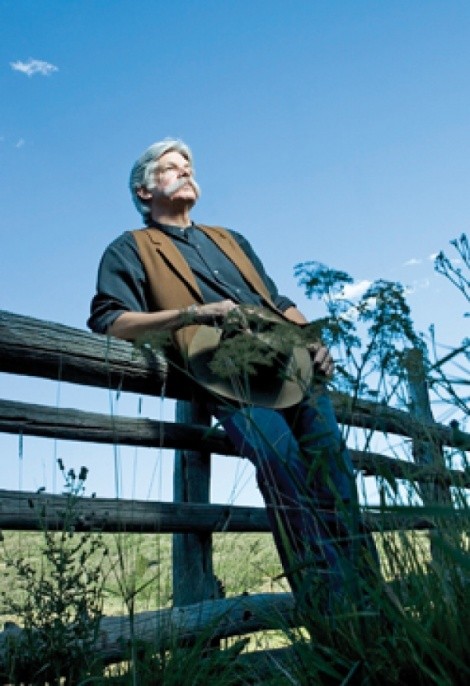
Lannie Scopes doesn’t seem like a real-estate agent. He seems like a cowboy.
It’s not just the wild brush of a silvery mustache, the kind you’d expect to find on an old sepia-tone photograph from the 1800s. There’s also a quiet, plain-spoken quality to the Park City resident that hearkens back to a simpler time.
Maybe it’s just that he takes after the relatives of his distant past.
Scopes’ first novel, the historical adventure The Life and Times of Samuel J. Groo, isn’t just the result of years of research into a family mystery. In many ways, it also feels like a natural progression in Scopes’ own life journey. The Utah resident had migrated east during his years as a professional musician but felt himself pulled back towards the West in the early 1990s, eventually becoming a regular performer of Old West-style entertainment at the Wagonmaster restaurant. “I missed the mountains and went back to my roots, to see what that was,” Scopes says. “And, in the process, the whole cowboy ethic—the honesty, saying what you mean, that kind of thing—really appealed to me.”
What he didn’t realize at the time was the extent to which the cowboy way was in his blood. He knew from his childhood of a mysterious, off-limits trunk in his grandmother’s house, which was passed on to his mother with a similar prohibition of being off-limits. But when his parents died 10 years ago, Scopes recalls, “The first thing we did, since we hadn’t been allowed to look in the trunk, was to go look in the trunk.”
The contents provided more questions than answers. In a false bottom of the trunk, Scopes found a diary wrapped in elk hide, attributed to “Samuel J. Groo” and dated from 1890s. An old family Bible connected the name Groo with a family name of Gee, along with Sam Groo’s last will and testament torn from his diary. It became evident that Sam Groo had been the brother of Scopes’ great-great grandmother Mary Groo Gee, both raised as children of the first wife in a polygamous Mormon family in Cokeville, Wyo. But who was Sam Groo, and why had the family records of his existence been kept so secret?
As Scopes began his research, the bits and pieces formed the outline of a man who might have lived a wild life after breaking away from his Mormon family in his youth. After poring over documents and talking to people like an elderly mayor of Cokeville who recalled tales of Groo’s exploits, he began to suspect that this “black sheep” had been erased from the official family history. “My parents were very religious, though not LDS,” Scopes says. “In the 1950s [in Utah], you were either LDS or you weren’t and, if you weren’t, you had to hang together and be as strong as you could. I wasn’t told any of the bad parts of the family.”
As Scopes’ fascination with Groo grew, he began putting the pieces together in the form of a novel. With so many gaps in his knowledge, he was forced to create a narrative from what he knew and what he could guess—from allusions in Groo’s diary to remorse over past wrongdoings, from briefly mentioned names, from a travelogue through the Alaskan Klondike during the 1898 gold rush. Though the story is often dense with detail of Groo’s early exploits, it eventually turns into a gripping adventure about the predatory world that sprang up around the quest for gold, and what would-be prospectors endured on their way to the remote gold fields—where, according to Scopes, most “either died on the [journey] or came back just as penniless as when they started.”
Putting that story together took a long time for someone who, as Scopes describes himself, had “no burning desire to write a novel and was just waiting for the right subject matter. It basically dropped in my lap and said, ‘Write me.’” Over the course of four years, he’d spend maybe two hours every day with “my coffee and my pencil and my journal.”
Upon completing the manuscript, he spent nearly four more years submitting the manuscript and getting rejection letters. Finally, Scopes self-published The Life and Times of Samuel J. Groo through iUniverse.com—a conclusion that seems somewhat fitting to this story. “I’ve always been a little bit like Sam, I guess,” Scopes says. “I don’t like to be told, ‘You have to do this.’ I figured out how to do it on my own.
“The thing that feels good about the book,” he continues, “is that I have this much”—holding two fingers slightly apart—“proof of Sam, that he even existed. For me, the mother lode was to give Sam a chance to come back and say, ‘I had a life, and this is what I did.’”
The Life and Times of Samuel J. Groo is available through iUniverse.com in paperback or Adobe eBook, and at BarnesandNoble.com.